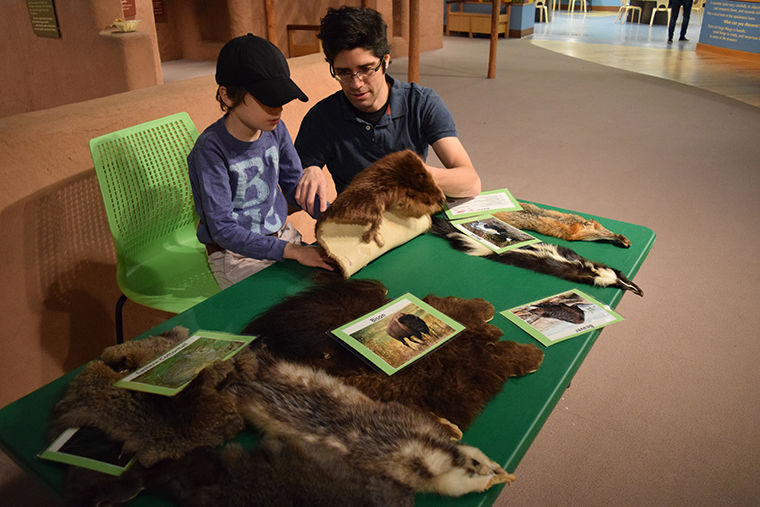Chicago institutions strive for inclusion
Courtesy The Field Museum of Natural History
The Field Museum of Natural History, 1400 S. Lake Shore Drive, has a Field For All program to promote inclusion across the museum for people with disabilities.
December 4, 2017
When Christena Gunther moved to Chicago from New York City in 2012, she was distressed by the city’s lack of access to cultural spaces for people with disabilities. The issue had been her passion since childhood, and she had worked on it for the Metropolitan Museum and Lincoln Center.
So in April 2013, she founded the Chicago Cultural Accessibility Consortium to work with local cultural institutions to promote accessibility. In the years since, Gunther said, some larger organizations have improved access.
For example, the Goodman Theatre, 170 N. Dearborn St., now offers American Sign Language interpretation, live captioning and listening devices, Gunther noted.
“Since coming here in 2012, I’ve seen positive changes for people with disabilities in museums and theaters across Chicago,” she said. “But there’s still a lot of work that needs to be done to make sure that every visitor feels welcome.”
The progress is not limited to theaters. The Field Museum of Natural History, 1400 S. Lake Shore Drive, began Accessibility Days at the Crown Family PlayLab, a hands-on science exhibit at the museum, last year.
Since then, the exhibit expanded into an initiative called Field For All that spawned a phone app, “Field Museum: Inclusion & Accessibility Tools,” which allows visitors to plan their trip based on their accessibility needs, according to the app page.
“There were barriers preventing people from accessing the [museum] resources,” said Alyssa Harsha, early childhood learning experiences coordinator at the Field Museum. “Being introspective led us to start thinking about ways we could [be] more inclusive.”
PlayLab Accessibility Days are reserved, 45-minute Tuesday sessions closed to the general public. The Field Museum tailors the PlayLab, which is typically intended for children, to groups that reserve the space. Lighting and sound sensory adjustments can be made, and adult chairs can be provided if a group needs them, Harhsa said.
The PlayLab is also open to families of children with sensory needs for “Sensory Saturdays.” Advance registration for Sensory Saturdays and Accessibility Days is required.
Chicago Dancemakers Forum, which advocates for accessibility and inclusion in dance, will host “Innovation in Chicago Dance and Disability,” Jan. 18, 2018, at the University of Illinois at Chicago Department of Disability and Human Development building, 1640 W. Roosevelt Road. The discussion will encourage collaborations “between dancemakers with and without disabilities,” according to the event page.
“Disability is an area of interest, [but] clearly artists with disabilities receive less support [and] are less visible,” said Ginger Farley, executive director of Chicago Dancemakers Forum. “We wanted to make sure that was part of the Chicago community.”
The Innovation in Chicago Dance and Disability discussion is the first such session hosted by Chicago Dancemakers Forum, and Farley said the organization wants to expand what its sessions cover.
Gunther said Chicago cultural institutions should not see progress toward inclusion as simply an obligation, but an opportunity for growth.
“Access is a journey and not a destination,” Gunther said. “It’s not as though you ever fully achieve accessibility. It’s always something you’re striving for, and it’s really tailoring or customizing each program or exhibition [and] making sure it works for everybody.”








